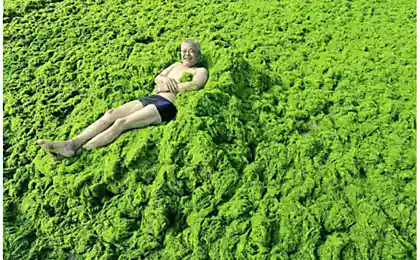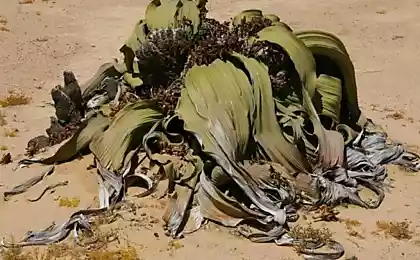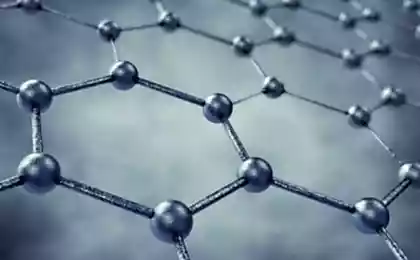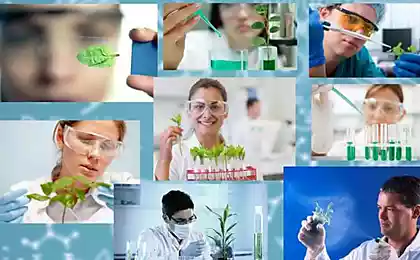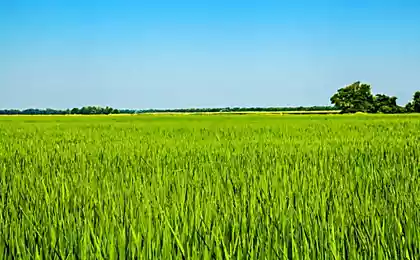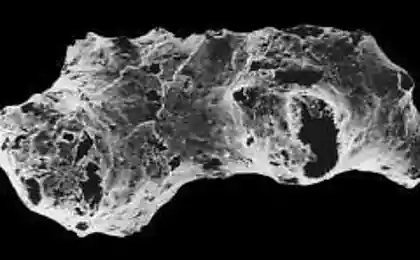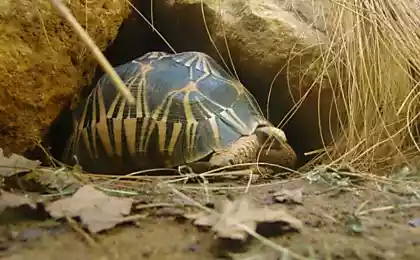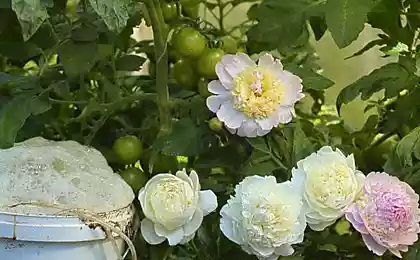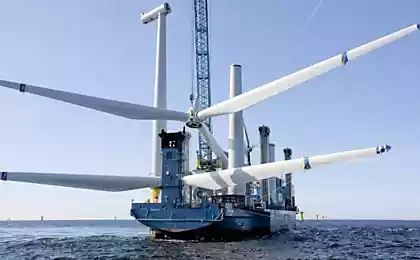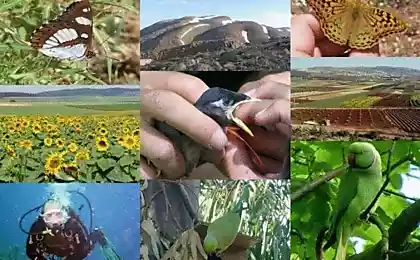586
Seaweed Posidonia oceanica will help to save the ecosystem
Huge, old algae that live at great depths of the ocean, according to a new study, researchers from the Institute of Oceanography at the University of Western Australia, may contain the secrets of the oldest living organisms on earth. The fact that the ancient ocean seaweed called Posidonia oceanica reproduce asexually, cloning themselves. It was discovered that the data array of algae is a single organism, up to 15 kilometres in width and has a weight of about 6 tons. The age of this huge plant may well be more than 100 thousand years.
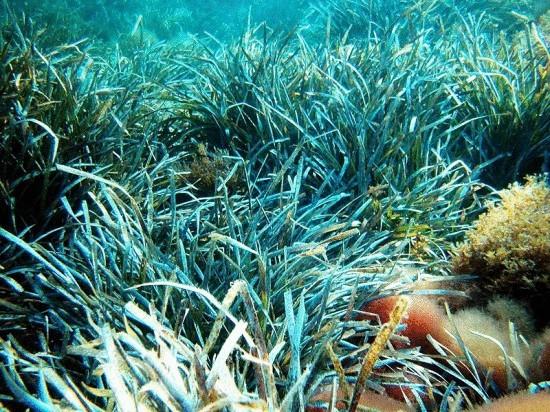
"The so-called clonal organisms have the ability to transmit from generation to generation, only the most significant of genomes, and the chain is potentially no end," — said the Professor of Oceanography from the University of Western Australia Carlos Duarte.
The researchers analyzed 40 "families" of algae, located 3500 kilometres of the Mediterranean bottom. Computer models helped to prove that clonal method of reproduction of Posidonia oceanica, which, like other algae, can reproduce both sexually and asexually, helping them to reproduce stable clones, preserving them for millennia, while the most resistant of genotypes that reproduced sexually are lost at every generation.
"Understanding why those particular genomes have been so resistant to a wide range of environmental conditions that had changed on Earth during all this time, will help you to find the key to unlocking some interesting points for future research," said Duarte.
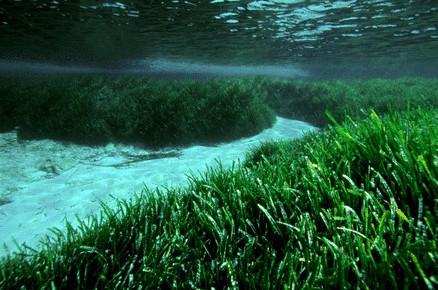
In addition to its age, the seaweed Posidonia oceanica is notable for its importance in the life of coastal marine ecosystems. As the authors of the current study, these plants "is supported by marine ecosystems, which are among the most valuable from the point of view of biodiversity and reproduction".
Scientists say that these plants managed to survive many thousands of years, in recent decades, are not in very good condition. In the last 20 years, the number began to decline, apparently because of global warming and declining water quality. We are talking about the body that could experience completely different climatic conditions can no longer adapt to the situation. This fact is indeed significant. As Duarte says, if climate change continues, the prospects of this kind can be dangerous.
At the moment, the scientists plan to continue research in the hope to learn more about the mechanism of adaptation of Posidonia oceanica to environmental conditions. And perhaps because of this veteran wildlife will be able to save not only himself, but also other organisms and ecosystems affected by climate change.
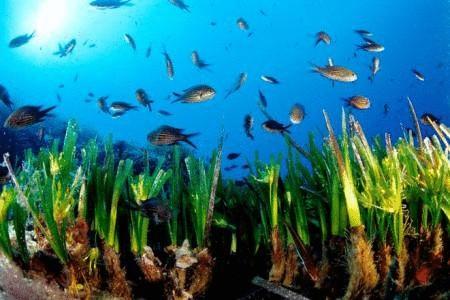
Source: /users/104

"The so-called clonal organisms have the ability to transmit from generation to generation, only the most significant of genomes, and the chain is potentially no end," — said the Professor of Oceanography from the University of Western Australia Carlos Duarte.
The researchers analyzed 40 "families" of algae, located 3500 kilometres of the Mediterranean bottom. Computer models helped to prove that clonal method of reproduction of Posidonia oceanica, which, like other algae, can reproduce both sexually and asexually, helping them to reproduce stable clones, preserving them for millennia, while the most resistant of genotypes that reproduced sexually are lost at every generation.
"Understanding why those particular genomes have been so resistant to a wide range of environmental conditions that had changed on Earth during all this time, will help you to find the key to unlocking some interesting points for future research," said Duarte.

In addition to its age, the seaweed Posidonia oceanica is notable for its importance in the life of coastal marine ecosystems. As the authors of the current study, these plants "is supported by marine ecosystems, which are among the most valuable from the point of view of biodiversity and reproduction".
Scientists say that these plants managed to survive many thousands of years, in recent decades, are not in very good condition. In the last 20 years, the number began to decline, apparently because of global warming and declining water quality. We are talking about the body that could experience completely different climatic conditions can no longer adapt to the situation. This fact is indeed significant. As Duarte says, if climate change continues, the prospects of this kind can be dangerous.
At the moment, the scientists plan to continue research in the hope to learn more about the mechanism of adaptation of Posidonia oceanica to environmental conditions. And perhaps because of this veteran wildlife will be able to save not only himself, but also other organisms and ecosystems affected by climate change.

Source: /users/104
Molecular food with a Mo Sphere by Electrolux
Jamy Toaster is your main source of information about the weather
